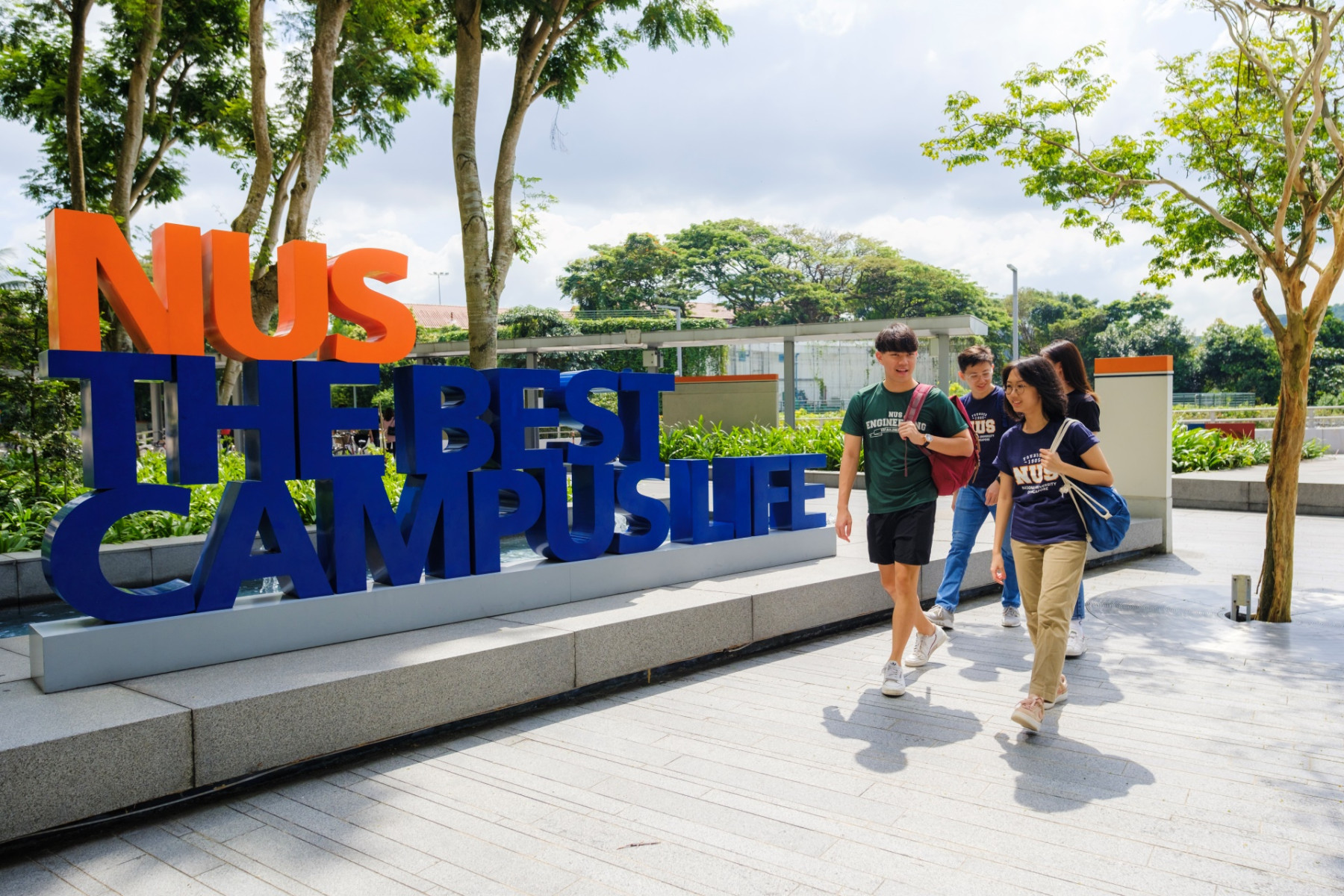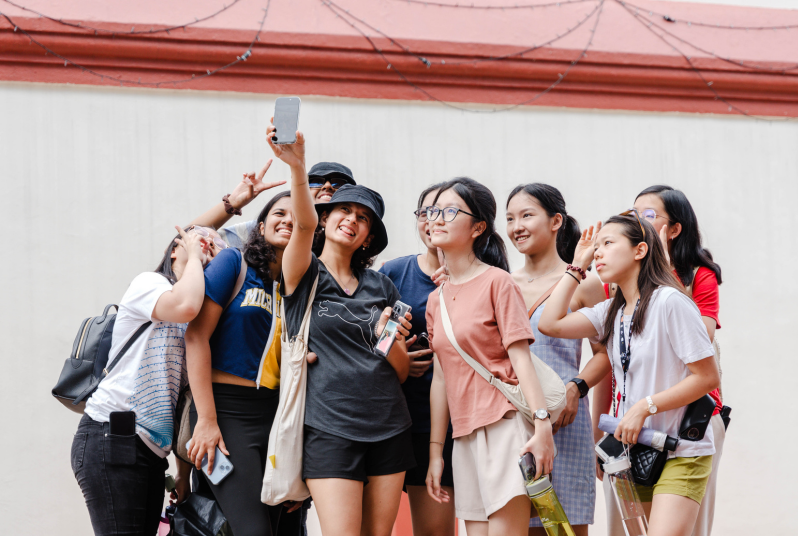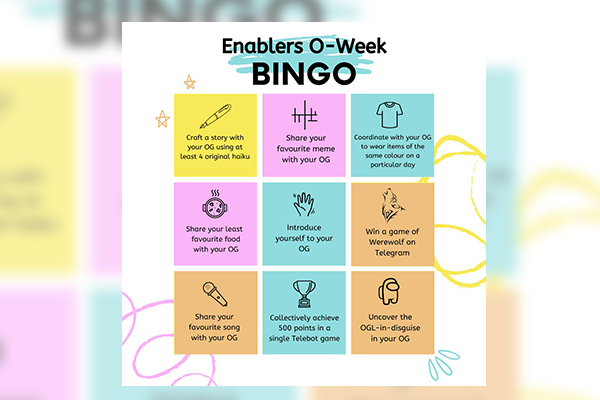First-year students enrolling in the National University of Singapore (NUS) in the new Academic Year in August 2024 will get their transformative university experience off the ground through a new transition programme designed to facilitate their adjustment to university life. This is one of the key elements of the new NUSOne initiative along with its intent to synergise the University’s formal classroom learning with out-of-classroom experiences.
This latest educational transformation at NUS will enable students to achieve academic excellence, embrace a rich and immersive student life, and develop essential future-ready attributes during their time in NUS.
Building upon the comprehensive transition programme, NUSOne will broaden students’ access and encourage their participation in a wide range of out-of-classroom activities. With a deeper appreciation of the diverse pathways and opportunities available, students are better informed when they personalise their own comprehensive and well-rounded university education that encompasses both academic and non-academic facets of campus life.
Professor Aaron Thean, NUS Deputy President (Academic Affairs) and Provost, said, “Student life and experiential learning are integral parts of NUS’ transformative education. Through NUSOne, we are elevating the emphasis on student life activities and out-of-classroom experiences, which will reinforce NUS’ hallmark of academic rigour and holistic education, to develop well-rounded, resilient and dynamic individuals who can thrive and flourish during and beyond their time at NUS. We are committed to giving our students the space and resources necessary to develop their potential to the fullest.”
NUSOne is a continuation of the University’s efforts to transform higher education. It also represents the ongoing range of significant reforms implemented by NUS over the past five years, including enhancements to its General Education curriculum, expanding the scale of interdisciplinarity in its academic offerings, integrating learning and real-world issues, and encouraging participation in and study of the arts through the “Arts For All” framework.
Three core features of NUSOne
(1) Enhanced transition to university
NUS recognises the importance of the freshmen transition as a fundamental foundation for their senior years, and the need to equip incoming undergraduates with the necessary skills and resources to adjust to university education. From August 2024, newly matriculated students will participate in a Transition to Higher Education (T.H.E.) Programme to familiarise them with academic and non-academic essentials.
The T.H.E. Programme will integrate existing introductory activities aimed at promoting a conducive learning culture within NUS, as well as newly introduced e-courses on wellbeing and resilience, and learning strategies. Please refer to the Annexe for more details on courses in T.H.E. Programme.
First-year students will also be given an NUSOne toolkit and roadmap: the toolkit will provide them with useful guidance to navigate their undergraduate journey while the roadmap will signpost students to the wide-ranging out-of-classroom activities available.
(2) Self-discovery and self-development
With a smoother transition into university, first-year students can personalise their non-academic development by deepening their interests in a diverse range of activities including arts, sports, community engagement, personal development workshops and many others.
In encouraging greater participation in out-of-classroom and student life activities, students can access these on Wednesday afternoons which will be mostly free from classes starting in Academic Year 2024/2025. With this, the University can come together as one community to explore and participate in various activities such as sports, arts, community outreach and others.
The University will also plan and roll-out various initiatives to complement NUSOne. Earlier this year, NUS announced a second major and minor in performing arts, as a way of integrating the arts into education catering to the broad interests of students.
Another upcoming addition to Kent Ridge campus is a sports-themed hostel named Valour House. Connoting courage, strength and resilience, it aims to provide a conducive environment for athletes and sports enthusiasts to pursue their interests in sports as well as venture into new sports or related activities for continual self-improvement. By emphasising community sports, Valour House seeks to build an active and inclusive community bonded through shared athletic experiences. It is envisioned that adaptive sports will also form part of future programme offerings. Students will also be given opportunities to organise community sports events for the NUS community.
Projected to open in August 2025, Valour House can accommodate up to 600 residents. The completion of this new residential complex, which will bring the total number of on-campus hostel places to about 12,500, is a major step towards realising our aspiration to provide every undergraduate the opportunity to experience on-campus living and learning for a year, especially during the freshman year. Currently, close to two-thirds of first-year undergraduates apply to stay on campus, and majority are assigned rooms.
(3) A holistic student experience and graduate narrative
NUS inaugurated the NUS Achievement Awards (formerly known as Student Life Awards) in 2019 to recognise the importance of student life as an integral part of the NUS education. Today, community engagement is a compulsory graduating requirement for NUS students.
Underscoring the value of student life and out-of-classroom experiences for the personal growth of NUS students, NUS will explore ways to reflect their engagement in such university experiences alongside their academic accomplishments. In so doing, our students will be able to put up a more comprehensive and holistic university narrative of their time in the University.
Keith Goh, incoming third-year student at NUS Business School, said, “When I first entered NUS after national service, I had to make adjustments, such as familiarising with the university environment, finding out where to go for my classes, and adapting to the different teaching styles for different courses. Having some guidance in the early part of the university journey – like what NUSOne is offering - will definitely be very helpful.”
He added, “I am also excited that NUSOne involves setting aside dedicated time to engage in sports, arts, and cultural activities, as this will encourage students like me to try out new activities beyond the classroom. The Valour House would be great for students who have an interest in sports to connect with like-minded individuals and pick up new sports and skills. Overall, NUSOne has the potential to create an even more cohesive NUS community, where students from different majors and different disciplines come together and bond over meaningful activities.”
Dewi Wulandari, incoming second-year Civil Engineering student at the NUS College of Design and Engineering as well as Secretary of the NUS Silat team, said, “When I first entered NUS, I was a little unsure about what non-academic activities I could take part in. Having a structured platform like NUSOne for students get an overview of the wide range of non-academic student activities will definitely encourage students to participate in these activities more actively.”
“For students in sports teams, such as NUS Silat, we typically start our training late in the day to accommodate our academic schedules. With Wednesday afternoons mostly free from classes, training sessions can now take place earlier, allowing us to finish our training sooner and get home to rest earlier,” she added.
Share:
Contributor
NUS News




